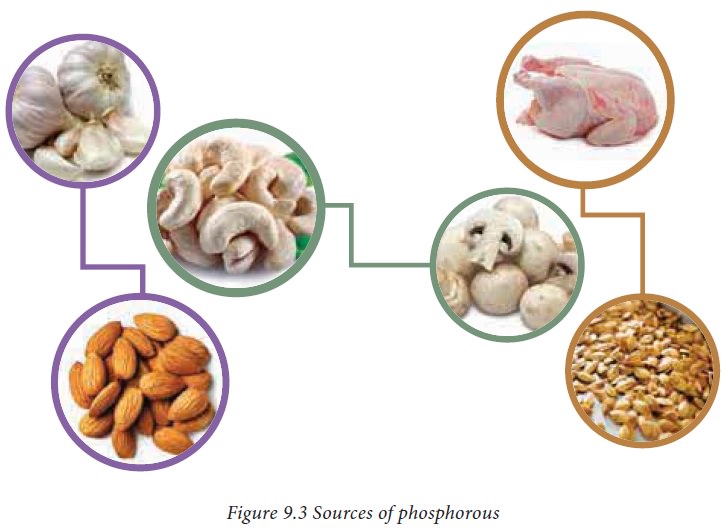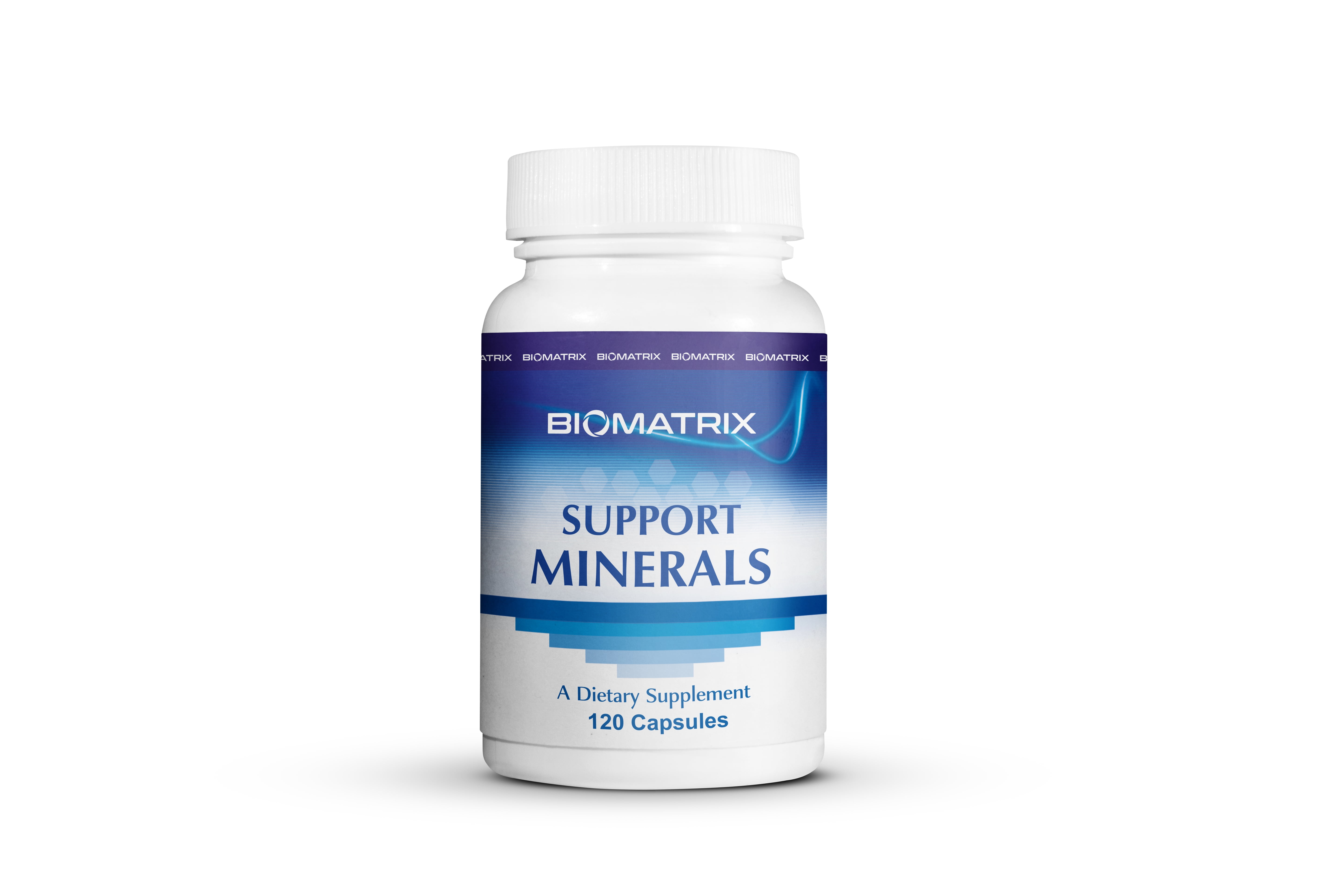

Potassium is a mineral necessary for good health and organ function, though most individuals' potassium requirements are met by their diet. The DRIs for phosphorus are 700-1250 mg/day. Some nutritional supplements may contain a small amount of phosphorus as a safety factor, but that supplementation is seldom required. Phosphorus deficiency and the need for supplementation are rare because almost all foods are rich in this mineral, including carbonated beverages. Phosphorus is an important macromineral in the body, but, like potassium, the diet usually supplies adequate levels. The DRIs for magnesium are 240-420 mg/day.

It is important, however, not to over consume magnesium since excess amounts of this mineral have a laxative effect. and most dietary surveys indicate that most individuals only get 220-320 mg. The recommended daily value for magnesium is 400 mg. Magnesium is also extremely important in regulating heart rhythms. Over 300 metabolic reactions involve this important nutrient so it is prudent to ensure your daily intake is sufficient. Magnesium is involved in more biochemical functions than any other mineral in the body. The DRIs for calcium are 1,000-1,300 mg/day. The major function of calcium is to build and maintain healthy bones and teeth however, it is also involved in much of the body’s enzyme activity as well as regulation of cardiovascular function. It makes up 1.5-2% of our body weight, with bones making up about 99% of the body’s calcium content. 5 CalciumĬalcium is the most abundant mineral in the body. Developed by the Food and Nutrition Board of the Institute of Medicine, they incorporate Recommended Dietary Allowances (RDAs) (the average daily dietary intake level sufficient to meet the nutrient requirements of nearly all healthy individuals in a group.) The DRIs, which are more comprehensive than the RDAs, were updated in 2016 and are expected to replace the RDAs in the future. Note: The Dietary Reference Intakes (DRIs) are indicated for each mineral for males and females nine years of age and older (not including infants, children under the age of 8 or pregnant or lactating women). Primary trace minerals include iron, zinc, copper, chromium, selenium, molybdenum, manganese, and iodine. Trace minerals, though only required in minute amounts by the body are, nevertheless, essential for good health. There are seven major minerals, which include calcium, chloride, magnesium, phosphorus, potassium, sodium and sulfur. Major minerals are required by the body in relatively large amounts. Minerals that are considered vital to good health, fitness, and mental well-being are divided into two primary groups: major minerals (also known as macro minerals) and trace minerals (also known as micro minerals). Linus Pauling, winner of two Nobel prizes, and a founder of the Linus Pauling Institute, which since 1973 has been devoted to nutrient research, said that minerals were the key to good health.& "You can trace every sickness, every disease and every ailment to a mineral deficiency, " Dr. If this type of imbalance is not corrected, a chain reaction of imbalances can begin that may lead to serious health problems. If one mineral level is out of balance, all other mineral levels may be affected. The human body must have a proper chemical balance that depends on the levels of different minerals in the body and in the ratios of certain mineral levels to one another.

Minerals are needed for the proper composition of body fluids, including blood, and for the proper composition of tissues, bone, teeth, muscles, and nerves. Kirkman ® also offers extensive lines of single mineral supplements (for a complete list click here) and multivitamin/mineral supplements (for a complete list click here). Kirkman ® offers a blend of minerals in our hypoallergenic Multiple Mineral Complex Pro-Support (#0063-180) and Advanced Mineral Support (#0325-180). Minerals are extracted from mineral salts (molecules such as sulfate, carbonate, citrate, oxide, or other negatively charged chemical group) for use in dietary supplements. We benefit from the nutrients that minerals provide when we eat plants that have absorbed minerals from the soil or water or animals that have eaten the plants. Minerals are naturally occurring chemical elements that are found in the earth. An interesting fact is that the body can use minerals without vitamins, but it cannot use vitamins without minerals 1. Have you ever noticed that most "multivitamin" formulations also contain multi-minerals? That’s because vitamins need minerals to be effective.


 0 kommentar(er)
0 kommentar(er)
